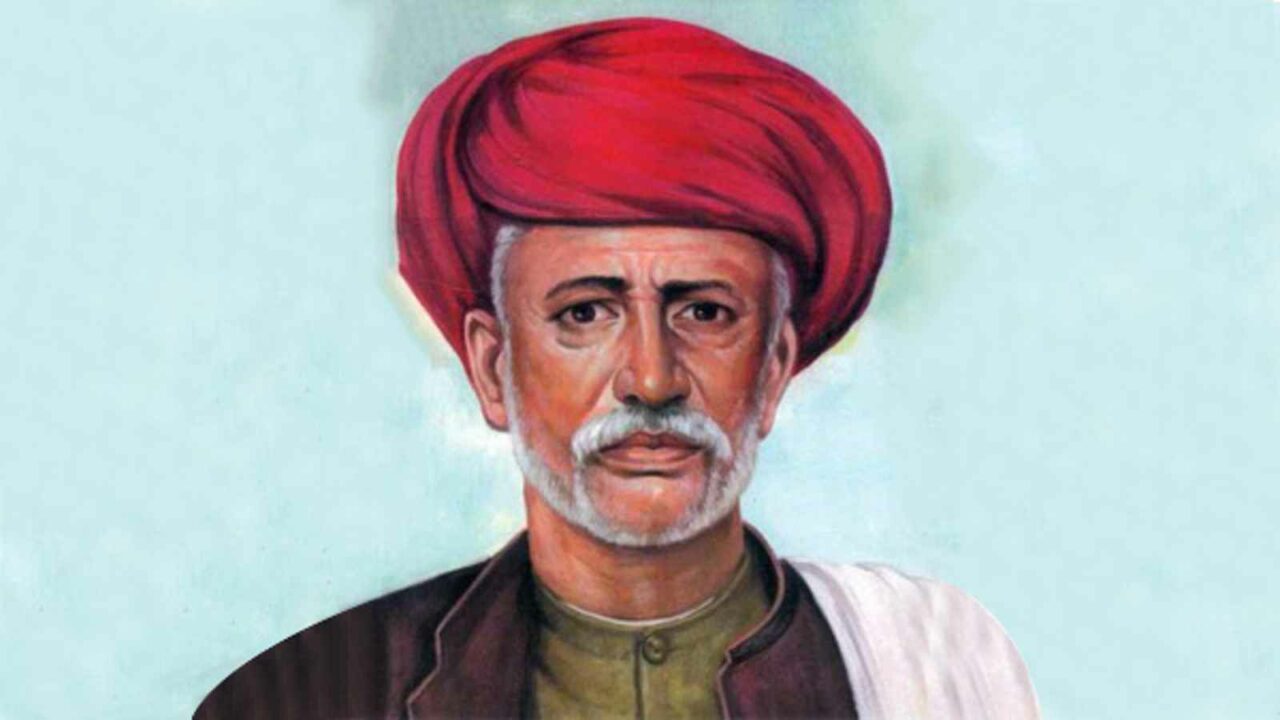Jyotirao Phule 196th Birth Anniversary: On April 11, 1827, in Pune, Maharashtra, under the reign of Peshwa Baji Rao II, Mahatma Jyotirao Phule was born into a family that was involved in the floral industry. The men of the family were florists, which is where the surname “Phule” originates from. This occupation gave rise to the family’s last name.
Chimnabai, Jyotirao’s mother, passed away when he was still a young child. At the time, his father was employed as a farmer and a flower dealer. However, this did not prevent him from making significant contributions to the development of Indian society. The extraordinary social reformer was a staunch supporter of the anti-caste movement and built the first school for girls from the lower sector of society. In addition to this, he engaged in a number of activities that advanced the cause of education for women.
Phule’s Inspiration:
The influential social activist drew a great deal of motivation from Thomas Paine’s book The Rights of Man. He was of the belief that the lowest caste members of society, as well as women, need to be educated in order to assist in the fight against social evils that are currently prevalent in the society. After teaching his wife how to read and write, he and his wife went on to found the first school in Pune specifically for female students while also taking on teaching roles there.
The school welcomed young women from all walks of life, regardless of their socioeconomic status, religious beliefs, or caste, and it did not discriminate on the basis of sexual orientation. The couple was shunned by society as a result of this scandal, but they persisted with their venture and had opened three further schools by the year 1852.
In addition to this, he advocated strongly against the practise of marrying children and encouraged widows to find new partners. The reformer, along with his wife and a friend, established an infanticide prevention centre in 1863. The centre provided a safe place for pregnant widows to give birth and care for their newborn children.
Phule was not only a merchant but also an author and a member of the local council. In addition, he was involved in the business of supplying building companies with metal casting machinery. Shetkarayacha Aasud and Gulamgiri, which translate to cultivator’s whipcord and enslavement, respectively, are two of his most well-known novels.
Learn the reasons why every Indian female owes Jyotirao Phule her gratitude:
In the year 1827, on April 11th, Jyotirao was born in Pune to parents Govindrao and Chimnabai. Because Govindrao and his brothers earned their living as florists for the Peshwas, they came to be known as the “Phule.” The word “Phul” originates from the Marathi language. Despite the fact that he was born into a lower caste, he was never subjected to caste discrimination because his family worked so closely with the Peshwas. Jytirao was forced to give up his education in order to provide for his family. But taking into account his potential, his neighbors, a Muslim instructor and a Christian man, persuaded his father to allow him to finish his study. In 1847, he graduated from the Scottish Mission High School having completed his schooling in this manner. Jyotirao, who was just 13 years old at the time, wed Savitribai, who was only 9 years old, in accordance with the custom of the time, which was known as “child marriage.”
Bankim Chandra Chatterjee Death Anniversary: Facts about Vande Mataram lyricist
First caste discrimination
Because of Phule’s close ties with the Peshwas, the family was never subject to caste discrimination. This is something that was discussed earlier. However, there was once a beginning to everything. The first time he encountered caste prejudice was in 1848, when he went to the wedding ceremony of a Brahmin friend of his. Due to the fact that he attended the wedding, the relatives of the groom insulted him.
Started schooling a century before the country’s independence.
The alleged event of “caste discrimination” had a significant influence on his thought process, and within a year he had established a school for females and untouchables alike. Jyotiba instructed his wife in the art of reading and writing, and as a result, in the year 1848, she became the very first female educator. Through his poetry, he brought to people’s attention the significance of receiving an education.
The society responded positively and enthusiastically to the project. Because they defied societal norms, the couple received backlash and ultimately had to move out of their parent’s home.
Sanctuary for the Widows of the Upper Castes
Child marriage was common throughout that time period, and younger women were frequently wed to much older men. Because of this, there was a rise in the number of young women who were left childless. Widows from higher castes were relegated to a miserable existence. They were forced to shave their heads, induce an abortion on their unborn child, refrain from entering the kitchen, and adhere to a number of other restrictions. The couple Phule established a residence for widows of upper-caste individuals in which they could continue their lives independently.
In addition, the children of widows were left behind. As a result, the couple established the first orphanage in the country, and they also went on to adopt a kid.
Advocated for the remarriage of widows
The pair supported the practise of widows marrying again. Again, for this endeavor, they were subjected to open criticism; nonetheless, the couple did not pay any attention to this feedback.
The name Mahatma also appears
Because of his significant contributions to the general welfare of society, a social reformer named Vithalrao Krishnaji Vadekar bestowed upon him the title of “Mahatma.” The passing of Mahatma on November 28, 1890 was a great loss, but Savitribai carried on with the activities that he had started.
A number of awards and honours have been bestowed upon Mahatma in the state of Maharashtra as well as in other states in India. The name of the great person has been given to a number of establishments, including educational institutions, cultural institutions, and even food markets.

















